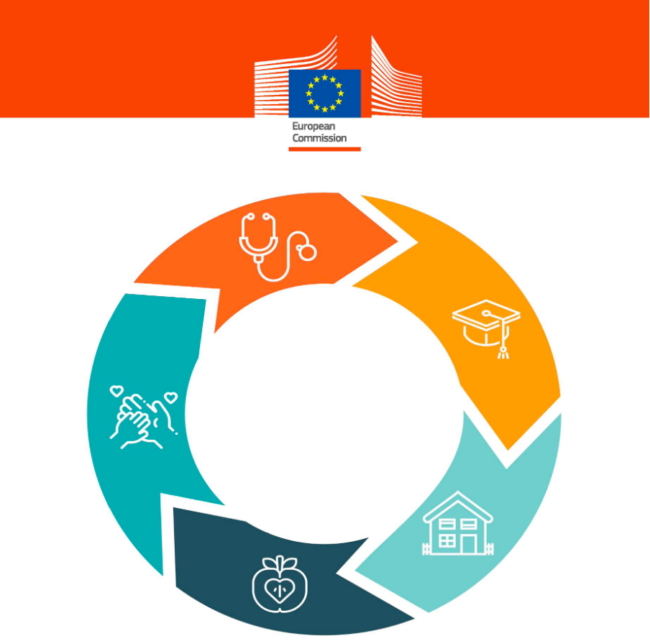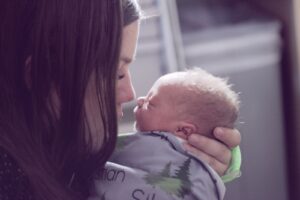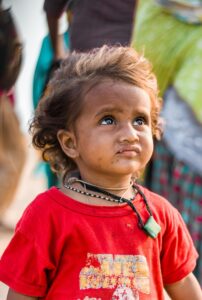EU Parliament recognizes the need to include parents when combating child poverty
A milestone for MMM and partners
22.09.23
In a significant stride towards prioritizing family welfare, the European Union Parliament has recently released a comprehensive report (“Children first - strengthening the Child guarantee, two years on from its adoption”) that not only acknowledges the impact of child poverty but also addresses a crucial aspect that has often been overlooked—the need to support and include parents. We at MMM are pleased to announce that our persistent advocacy for the inclusion of parents in the fight against child poverty has borne fruit, as reflected in this report.

We want to acknowledge the work and leadership of MEP Dragoș Pîslaru and the strong commitment and support of MEP Lucia Ďuriš Nicholsonová towards the eradication of child poverty.
The current report includes three of our main demands:
One of the key successful outcomes is the explicit inclusion of parents in the Child Guarantee (CG) scheme. The Child Guarantee, aimed at ensuring that every child in the European Union has access to free healthcare, education, and adequate nutrition, has now expanded its scope to recognize the integral role parents play in a child’s well-being and that they need also to be supported. This recognition goes beyond merely acknowledging the existence of parents; it signifies a commitment to actively involve them in the strategies and actions undertaken to combat child poverty.
The report goes further by urging Member States to actively support families during the implementation of the Child Guarantee at the national level, via the National Action Plans (NAP) that almost all Member States have submitted to the EU Commission. This call for support extends beyond the child-centric focus, recognizing that families as a whole play a pivotal role in shaping a child’s environment and opportunities. By emphasizing the importance of parental involvement, the EU Parliament is sending a clear message to Member States about the need for holistic and inclusive measures when addressing child poverty.
Throughout the text of the resolution children and families are considered together
A noteworthy aspect of the report is the consistent thread woven throughout its text, emphasizing the consideration of children within the context of their families. The recognition that children do not exist in isolation, but are part of a broader familial unit, is a fundamental shift in perspective. By acknowledging the interdependence of children and families, the report encourages a more comprehensive approach to combating child poverty—one that recognizes and addresses the multifaceted challenges faced by families.
A second key outcome is the call on Member States to include access to maternal and newborn health in the NAPs of the Child Guarantee. The significance of this expansion cannot be overstated, especially considering that previously, the scheme’s scope was limited to child health, and maternal health, both physical and mental, was regrettably overlooked. At MMM, we have consistently emphasized that the health of mothers has a profound and proven impact on the well-being and health of their children.
in the NAPs of the Child Guarantee. The significance of this expansion cannot be overstated, especially considering that previously, the scheme’s scope was limited to child health, and maternal health, both physical and mental, was regrettably overlooked. At MMM, we have consistently emphasized that the health of mothers has a profound and proven impact on the well-being and health of their children.
Maternal health, encompassing both physical and mental well-being, is a cornerstone of a child’s health journey
Numerous studies have demonstrated that a mother’s health during pregnancy and the postpartum period significantly influences the child’s development and long-term health outcomes. By recognizing the importance of maternal health, the scheme is now better equipped to address the comprehensive needs of families, ensuring a healthier start for both mothers and their newborns.
 A third successful outcome is the call to Member States to establish one-stop shops, within existing local and regional structures. MMM has advocated on different occasions the importance of including these support systems for children and families. These dedicated hubs aim to streamline and enhance access to vital information on early detection and early childhood intervention.
A third successful outcome is the call to Member States to establish one-stop shops, within existing local and regional structures. MMM has advocated on different occasions the importance of including these support systems for children and families. These dedicated hubs aim to streamline and enhance access to vital information on early detection and early childhood intervention.
The envisioned one-stop shops serve as comprehensive resource centers, extending beyond mere information provision to offer targeted support for accessing social security and assistance
Furthermore, these hubs will play a pivotal role in guiding families towards specific local measures geared towards social inclusion. By consolidating these essential services, local and regional authorities can create a seamless and accessible network, ensuring that children and families receive the support they need efficiently and comprehensively. This collaborative approach underscores the commitment to fostering an environment where information, assistance, and inclusion are readily available and easily accessible for those who need it most.
Finally, some other important points the EU Parliament’s resolution addresses are: the lack of attention and focus of the NAPs, particularly on vulnerable families, such as single-parent families, low-income families and large families facing additional difficulties. The urgent need to increase the funding for the European Child Guarantee, the need to lift administrative burdens to ensure direct, adequate and easily accessible funding at both regional and local levels and the call for establishing a European authority for children.
While we celebrate this clear and strong resolution, we continue to advocate for the inclusion in the NAPs of comprehensive national policies and initiatives that prioritize the well-being of both children and their families, ensuring that all children and their families in Europe are lifted out of poverty without further delay.
Breaking the Cycle: Gender Equality as a Path to Better Mental Health
18.03.25
The Council of the European Union has taken a decisive step in recognising the vital connection between gender equality and mental health.
Europe Must Listen to Mothers: Our landmark report heads to the European Parliament
28.08.25
On 22 September 2025, the voices of mothers will take centre stage in Brussels. For the first time, Make Mothers Matter (MMM) will present its State of Motherhood in Europe
Belgian Mothers Face Alarming Rates of Burnout and Perinatal Depression, New EU Survey Finds
03.07.25
Belgian mothers are facing a mental health crisis. According to the State of Motherhood in Europe 2024 survey by Make Mothers Matter (MMM) and Kantar, Belgium reports the highest rates








